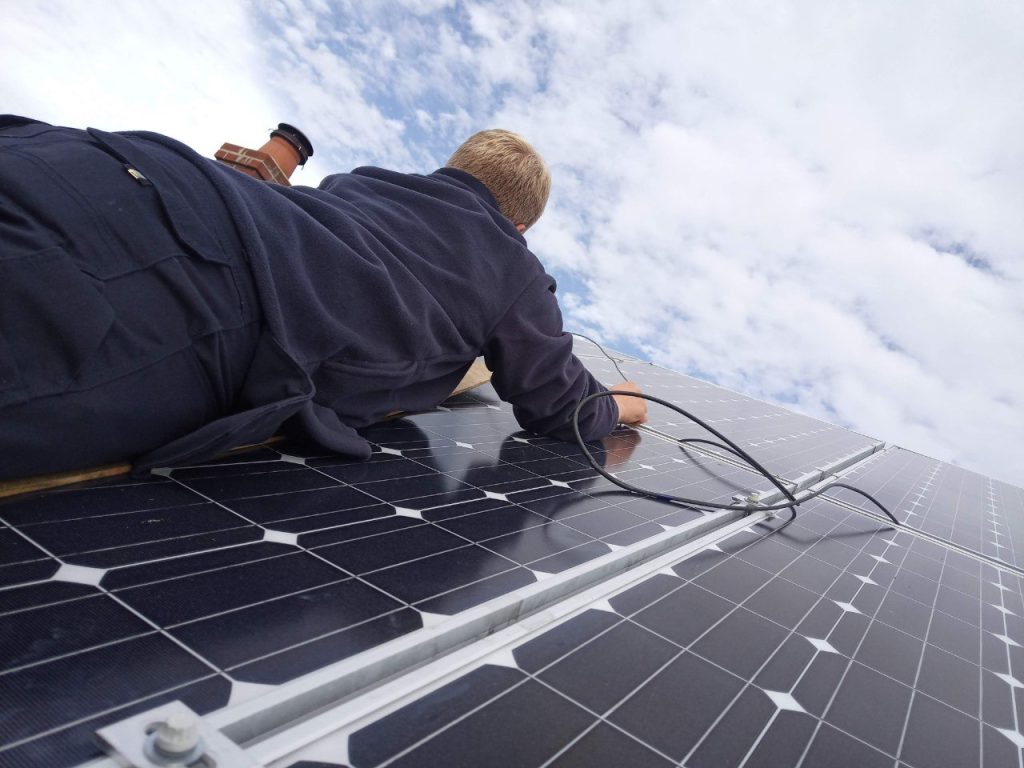
There are many benefits to fitting solar panels in the United Kingdom. These include:
- Reduced energy bills: Solar panels can generate electricity from the sun, which can help you reduce your reliance on the grid and lower your energy bills.
- Increased property value: Studies have shown that homes with solar panels sell for more than homes without solar panels. In some cases, the increase in property value can be enough to offset the cost of installing solar panels.
- Environmental benefits: Solar panels are a renewable source of energy, which means they do not produce greenhouse gases or other pollutants. By installing solar panels, you can help to reduce your carbon footprint and contribute to a cleaner environment.
- Government incentives: There are a number of government incentives available for homeowners and businesses that install solar panels. These incentives can help to offset the cost of installation and make solar panels more affordable. Currently, there is Zero VAT on new domestic installations.
Overall, there are many benefits to fitting solar panels in the United Kingdom. If you are looking for a way to save money, reduce your carbon footprint, and increase the value of your home, then solar panels may be a good option for you.
Here are some additional details about the benefits of solar panels in the UK:
- Reduced energy bills: The amount of money you can save on your energy bills by installing solar panels will depend on a number of factors, including the size of your solar system, the amount of sunlight your home receives, and your energy consumption. If you are unsure of what you stand to gain, we can help you with a bespoke solution that is tailored to your specific installation and requirements.
- Environmental benefits: Solar Solar panels can also help to improve air quality and reduce noise pollution.
If you are considering installing solar panels on or around your, home or business, be sure to do your research and compare the different solar options available, there are many ways to leverage new technology. We can help you realise the best solution for your needs.
There are three main options for installing solar panels, inverters, and battery storage solutions:
- Grid-tied: This is the most common type of solar system. In a grid-tied system, your solar panels generate electricity that is used to power your home or business. Any excess electricity is sent back to the grid, and you are credited for it.
- Off-grid: An off-grid system is not connected to the grid. This means that you need to have enough solar panels to generate enough electricity to power your home or business, even when the sun is not shining. Off-grid systems typically have battery storage to store excess electricity for use at night or during cloudy days.
- Hybrid: A hybrid system is a combination of a grid-tied system and an off-grid system. In a hybrid system, your solar panels generate electricity that is used to power your home or business. Any excess electricity is sent back to the grid, and you are credited for it. The system also has battery storage to store excess electricity for use at night or during cloudy days.
The best option for you will depend on your individual needs and circumstances. If you live in an area with a reliable grid and you want to save money on your energy bills, then a grid-tied system may be the best option for you. If you live in an area with frequent power outages or you want to be independent of the grid, then an off-grid system may be the best option for you. If you want the best of both worlds, then a hybrid system may be the best option for you.
Here are some additional factors to consider when choosing a solar system:
- The size of your home or business: The size of your solar system will depend on the size of your home or business and your energy consumption.
- The amount of sunlight your home or business receives: The amount of sunlight your home or business receives will affect the amount of electricity your solar panels can generate.
- Your budget: The cost of a solar system can vary depending on the size of the system, the type of system, and the location of your home or business.

